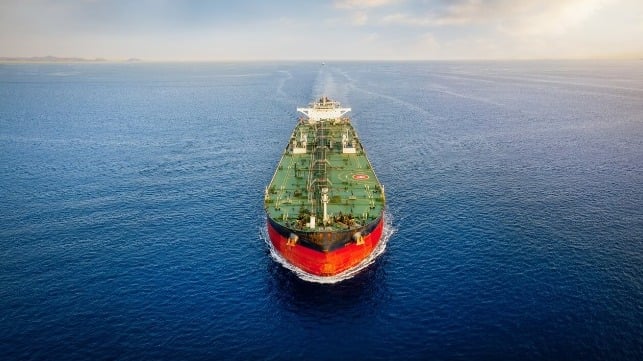Sanctions and Oil Price Pressures Build on Russian Revenues

Russia is facing multiple threats to its ability to finance its war on Ukraine, with pressures about to become much worse. For the first time since Russia invaded Ukraine for the second time in February 2022, this pressure appears to be coordinated and comprehensive.
Two sets of sanctions are set to be implemented in the coming weeks. President Trump, fed up with President Putin’s negotiating prevarications, has threatened those countries purchasing Russian oil at above the set price cap with secondary sanctions, in effect adopting the Senator Lindsey Graham-led proposals made in Congress but at less punitive penalty tariff levels. India would be a principal target. The EU has pre-emptively reinforced this action in its 18th round of anti-Russian sanctions, adopting a price cap of $47.60, adjustable to be always 15% lower than the average market price for Urals crude. One or both sets of these sanctions will have an immediate impact on the revenues that Russia can earn from its oil exports, measures that also have the attraction of maintaining sufficient oil production but at lower price levels likely to encourage global economic growth.
At the same time, OPEC oil producers, seeking to recapture market share from those previously tempted to purchase heavily discounted Russian oil, have relaxed production curbs. Indeed, the UAE has been granted an additional market quota, and new production, such as from Guyana, has come on stream.
By previously restricting output and keeping oil prices high, Middle East producers saw their market share drop from 40% in 2015 to 25% this year, losing out to US shale oil producers who were encouraged to invest in output growth by the high prices. Over the same period, US market share has risen from 14% to 20%. Over the past month, the average price of crude has fallen by 3.34% to $65.63, a trend that will accelerate as increased production comes on stream. The production-boosted price fall enhances the effectiveness of the sanctions price cap, because spot market purchasers now have a wider source of low-cost supplies.
Additionally, US and EU sanctions against dark fleet shipping carrying Russian oil are being significantly tightened. In a rush of listings since July, the UK’s National Crime Agency has estimated that 400 dark fleet tankers have now been sanctioned, and have emphasized how insurance and finance companies providing cover for dark fleet shipments are as much under scrutiny as ships and owners directly. The Russian Navy now has to escort dark fleet tankers, for fear of seizure by nations though whose territorial waters they might wish to transit. This is a particular problem for Russia in the Baltic, where sea-lanes to its primary export terminals at Ust-Luga and Primorsk pass through choke points within national 12-mile limits. In seeking to test limits to rights of innocent passage, the Danish Maritime Authority for example is now asserting that it will board ships if it has information “that the safety or working conditions of the seafarers are not in compliance with international regulations including obligatory insurance requirements.” Aside from sanctions, such concerns can be justified sufficiently on environmental grounds alone, given the condition and insurance status of much of the dark fleet.
To these pressures can be added the threat to dark fleet tankers posed by unexplained limpet mine attacks. The latest in the series, the formerly Djibouti-flagged Aframax Pushpa (IMO: 9332810) was attacked while off Malta on July 16, having previously unloaded at Ust-Luga. The Marshall Island-flagged LNG tanker Eco Wizard (IMO: 9941568) was actually in Ust-Luga when it fell victim to limpet mines on July 6. Such attacks, plus the sanctioning of owners, encourages buccaneer operators and investors to withdraw from the business, leaving the financial burden of maintaining the dark fleet to Russian front companies.
A major impediment to a successful squeeze on Russian finances remains. China has a vested interest in keeping the conflict in Ukraine going, and cannot afford a Russian reverse, which would leave Western powers able to focus solely on the threat posed by China without being sidetracked. Hence Beijing may, for both political and commercial advantage, help the Russians out and increase its purchases of discounted oil. But if it does so, it will have to calculate the impact such action will have on its ongoing trade negotiations with the United States.
The opinions expressed herein are the author's and not necessarily those of The Maritime Executive.
